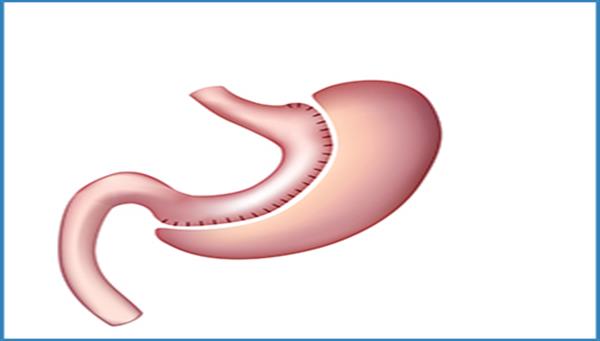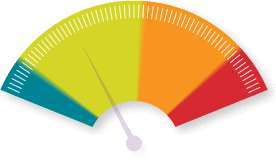Sleeve Gastrectomy
This procedure is performed by removing a part of the stomach laparoscopically (closed) in order to help weight-loss.
Why it’s preferred?
Sleeve gastrectomy is frequently procedure that performed in bariatric surgery recently. This procedure is preferred because it has a low complication incidence rate as well as it is easily applicable, efficient and safe way to lose weight, and produces a positive impact on the obesity-related diseases such as diabetes, hypertension, sleep apnea syndrome, etc.
Sleeve Gastrectomy Procedure
Watch Video 1.
How to lose weight after this procedure?
After sleeve gastrectomy patients lose weight mainly because of two reasons:
- Caloric intake is limited thereby the remained stomach is small.
- Hormonal changes are occurred [e.g. ghrelin (feeling of hungry) and leptin (feeling of satiety) hormones can change].
What are the risk and complications of sleeve gastrectomy?
After this procedure there are two major risk and complications that include leaks and bleeding. Apart from these, gastrointestinal obstruction, stomach twisting, intra-abdominal infection, and late-term fistula can be seen. Except bleeding and early leaks, these complications generally have seen in the late-term. The complication rates in the sleeve gastrectomy surgeries are similar with complication rates of other abdominal surgeries such as cholecystotomy, bowel surgery, stomach surgery etc. According to recent studies, risk and complications of sleeve gastrectomy surgeries are as below:
- Average of leak risk is 2,1%
- Risk of bleeding is 1,2%
- Gastrointestinal obstruction risk is 0,6%
- Mortality risk is 0,08%
Results
Sleeve Gastrectomy does not cause malabsorption. Therefore vitamin deficiency and trace element have been less seen in comparison with other malabsorptive surgeries in patients. In the postoperative period, patients lose 80-95% of their extra kilos (or their extra pounds) with a proper diet and exercise program. In the course for obesity related disease, the improvement ratio is between 80% and complete remission (healing).
References
- Correlations between intra-abdominal pressure and obesity-related co-morbidities.2009 Sep-Oct;5(5):524-8. doi:10.1016/j.soard.2009.04.003. Epub 2009 Apr 23. Varela JE1, Hinojosa M, NguyenN.
- Comparison of laparoscopic sleeve gastrectomy leak rates in four staple-line reinforcement options: a systematic review.2014 Jul-Aug;10(4):713-23. doi: 10.1016/j.soard.2014.01.016. Epub 2014 Jan 28. GagnerM1, BuchwaldJN2.
- Gastric leaks post sleeve gastrectomy: Review of its prevention and management.World J Gastroenterol. Oct 14, 2014; 20(38): 13904-13910 Published online Oct 14, 2014. doi: 10.3748/wjg.v20.i38.13904 Antoine Abou Rached, Melkart Basile, Hicham El Masri.
- Studies Weigh in on Safety and Effectiveness of Newer Bariatric and Metabolic Surgery Procedure – American Society for Metabolic and Bariatric Surgery. American Society for Metabolic and Bariatric Surgery. 2017. Available at: https://asmbs.org/resources/studies-weigh-in-on-safety-and-effectiveness-of-newer-bariatric-and-metabolic-surgery-procedure. Accessed August 17, 2017.













